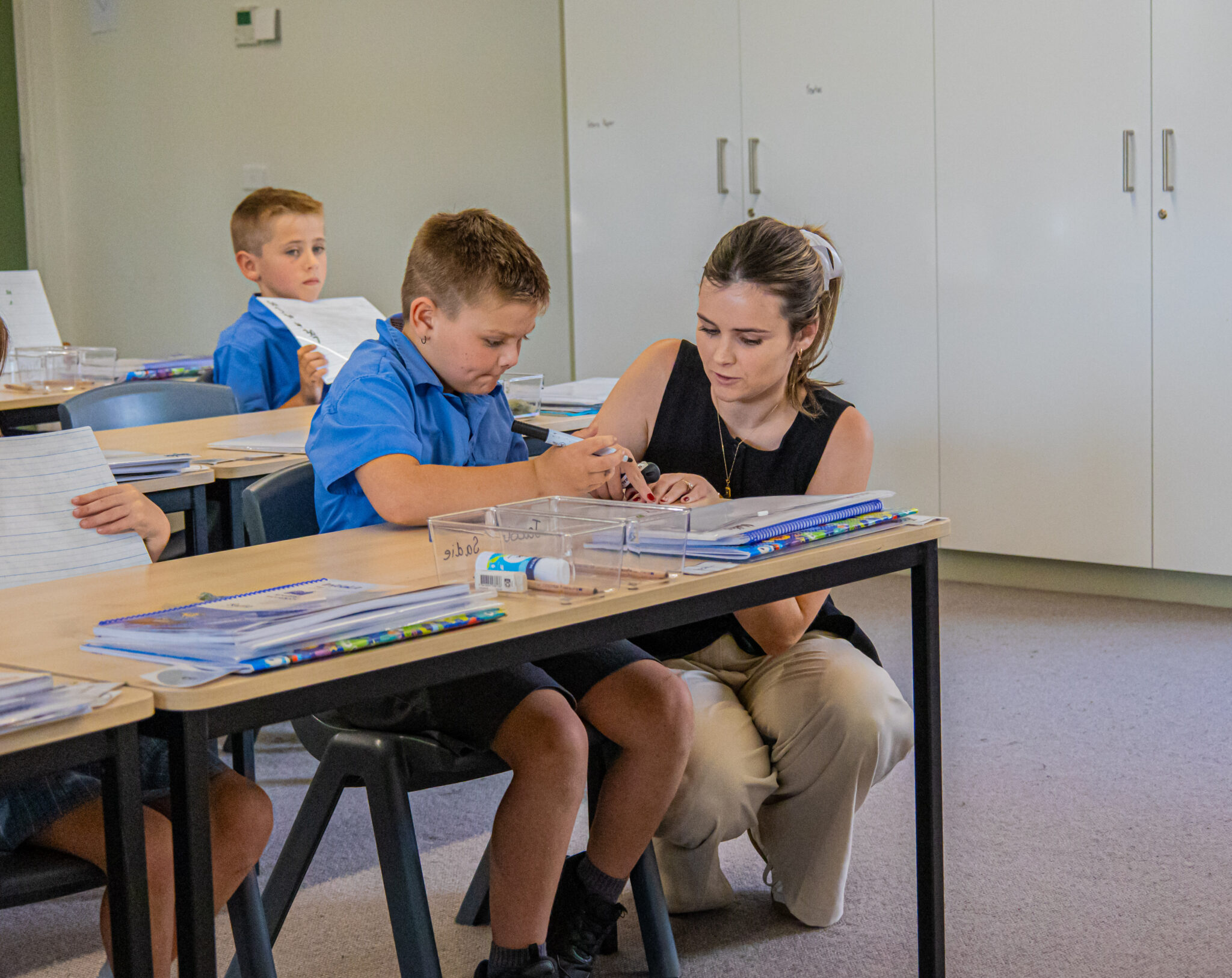Everyone has the potential to learn.
We pride ourselves on personalising the learning for all students. We believe that every child is competent, capable and can reach their full potential.
Learning & Teaching
At St Monica’s, every child is taught by their next point of need. This guides our approach, and allows us to consistently meet the needs of each child.
We believe that the best learning takes place when we feel secure, valued and are able to take risks. Our learning is challenging, meaningful, purposeful and engaging. It takes place within a purposeful and engaging environment.
Our approach to learning is through direct instruction, targeted retrieval, deliberate practice, questioning, exploring, experimenting and problem solving.
We are directed by the National Curriculum and the Victorian Curriculum. We also constantly research and adopt best practices to ensure our learning and teaching engages our students and promotes effective and efficient learning.
Specialist Subjects
We offer a broad range of specialist subjects, taught by fully qualified teachers in those areas. Our students enjoy a comprehensive curriculum including French, Visual Arts, Performing Arts, STEM, Science, Physical Education and Sport.
Our Signature Pedagogy
We pride ourselves on the implementation of our signature pedagogy – an approach to learning and teaching that involves clear and explicit instruction to students on what to do and how to do it, delivered via evidence-based best practice and structures. This involves:
- carefully planned and sequenced lessons
- clear and well modelled instructions
- a model of gradual release to prepare students for independent practice
- a frequent and systematic collection of student data and feedback
- implementation of targeted intervention programs
Reading and Numeracy
We implement a synthetic phonics program which prioritises the essential elements for reading proficiency, phonemic awareness, phonics, fluency, vocabulary and comprehension. This is based on the science of reading and supported by cognitive load theory and the cognitive science of learning.
In our numeracy classes, we use explicit instruction and incorporate practices to ensure that our students transfer previously learnt content to their long-term memory. We focus on the use of concrete materials and a hands on approach to learning, so that students can grasp new concepts through investigation.
Mastering Learning
We embrace a ‘gradual release’ model to target the development of independence and mastery of learning. We know that it is only after effective learning of content and concepts that children can begin to use that knowledge in the world around them.
Reporting & Assessment
Reporting is a key part of each students educational journey at St. Monica’s.
We deliver our reporting and assessment in three ways —
Dynamic Comments
Throughout each term, students receive dynamic comments which are communicated via our Parent Access Module (PAM) to provide real-time information regarding student progression and development.
Parent / Teacher / Student Meetings
These meetings are an opportunity to discuss and celebrate the student, reflect on learning and address any concerns relating to the social emotional, learning or general wellbeing needs of the student. Meetings are conducted between parents, students and the classroom teacher during the first and third terms.
End of Semester Reports
At the end of each semester, we deliver a report from the child’s teacher, based on data collected throughout the semester. This assessment is made against the Victorian Curriculum Standards and is a comparative assessment to the level expected at any particular year level. This report also includes a summary of all dynamic comments from throughout the semester.
Support
Our school community promotes the safety, wellbeing and inclusion of all students – in the classroom and beyond.
We are committed to extensive processes to support the Nationally Consistent Collection of Data (NCCD) to provide and evidence relevant adjustments for all learners within our school.
We have learning support staff in all areas to lead interventions around social and academic needs as well as other roles within the school to support points of need. Within our school we have a leader of learning diversity, speech pathologist, school psychologist, defence transition aide, chaplain as well as a wide range of specialist intervention staff.
